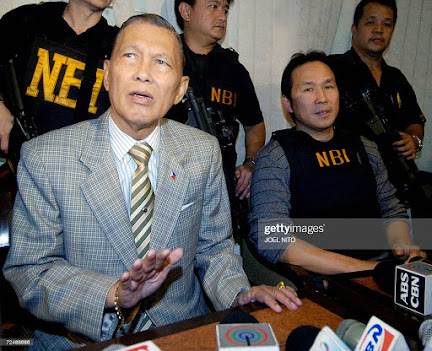Vlogger Nas Daily stopped his foundation in the Philippines after his dealings with worshipped tattoo craftsman Whang-Od bothered netizens and mixed discussions on how unfamiliar content creators like him include Filipinos.
Was it clickbaiting? Nas Daily (Nuseir Yassin, in actuality) said no. The Palestinian-Israeli said he just intended to show the "splendid side of the Philippines" and that he would keep on doing it once he figures out what occurred with Whang-Od with the National Commission on Culture and the Arts.
YouTube is overwhelmed with non-Filipino content creators who pile up huge number of perspectives reporting their lives in the country, from cutout excursions to Boracay and Binondo to house-chasing.
"You make content para mama see ng mga Pilipino," University of the Philippines humanism educator Samuel Cabbuag told reportr. "Also, as a rule ang gumagawa early afternoon ay mga non-Filipino para I-see sila ng Filipinos."
It's Pinoybaiting, a term begat last year to allude to such content, which Filipinos gorged on at the beginning of the Covid lockdowns
How Pinoybaiting functions
Filipino vlogger and podcaster M.A. Buendia was among quick to utilize the term Pinoybaiting to allude to the "promoting methodology" of content creators to draw in Filipino crowds into drawing in with their content.
"Unfamiliar YouTubers misrepresent response recordings to our vocalists [and to] TV shows and movies including the Philippines in their plotline," he said in a tweet in January 2020.
"It's intended for the individuals who conspicuously plunk down, constrain themselves to be flabbergasted by all that Filipino related just to pile up details," he said in another remark on YouTube.
advertisement
It's no big surprise that some unfamiliar content creators are attached to making recordings about the Philippines, the world's web-based media capital.
Filipinos spend a normal of four hours and 15 minutes every day on different web-based media stages, more than some other country on the planet, a report by We Are Social and Hootsuite delivered before this year showed
For what reason do Filipinos succumb to the trap?
For Buendia, this is on the grounds that "our hunger for worldwide approval is genuine."
"We love worldwide consideration and endorsement. It's a pitiful public issue and really awful others are taking advantage of it," he added.
For Cabbuag, the sociologist, the purported need of Filipinos for worldwide approval reduces to the country's provincial history. As indicated by him, Filipinos have been ignored for a long time that some have longed for a kind of acknowledgment from different societies.
"It's a greater amount of nare-perceive tayo, na meron pala tayong something na conspicuous. Energy natin magkaroon ng mas pantay na pagtingin sa mga kultura," he said.
"It's a greater amount of equity as far as sa pagtingin na tayo ay isang grupo o isang bansa na may sariling language, na may sariling kultura, na may sariling set of qualities. I think doon nanggagaling yung sinasabi nilang should be approved," he added.
Vloggers have a 'good and moral commitment'
Albeit some netizens like that the Filipino culture is being remembered, it doesn't really imply that Pinoybaiting is worthy, Cabbuag said. "It truly leaves a terrible taste" when creators become so fixated on making Filipino content, he conceded.
"Lalo na sa iba na parang 'Ano ba yan, lahat na lang ng content niya about sa atin.' 'Bakit ang obssessed niyo,' may mga ganung scrutinize," he said.
Be that as it may, netizens shouldn't sum up, all things considered. Cabbuag said there are additionally unfamiliar content creators who truly love the Filipino culture and need to feature it in their recordings.
"Bakit mo naman pipigilan kung yun talaga yung naging purposeful venture niya?" he said.
With all due respect, Nas Daily guaranteed that he was not bedeviling Filipinos into watching his recordings.
"There is no clickbaiting here. There is no 'placed Philippines' in the title poop. This is us, on the ground accomplishing the work to show you the brilliant side of the Philippines," he said in a six-minute Facebook video on Monday.
As the line among celebrating and commodifying Filipino culture is some of the time obscured, vloggers have the "moral and good commitment" to painstakingly conceptualize their content to guarantee that no individual or culture is being stomped all over, Cabbuag said.
"Kailangan talaga nila isipin kung sino yung target group nila, sino yung nakikinabang aside sa kanila kasi alam natin na makikinabang sila. How would you make content na you're not actually bedeviling a few group, yet you are celebrating their way of life," he added.
Filipinos ought to likewise be more dynamic in devouring content also, Cabbuag said. In a space like the web where connecting with posts and recordings are all over, it generally pays to be basic, he added.
"Right away, it very well might be a festival of the way of life, however it may not be the case constantly," the sociologist said.
"In the event that you truly imagine that that specific content is goading and it's now manipulative, then, at that point it's great to get down on them. Connect with, kailangan talaga maging basic tayong watchers."
More stories:
- SEVEN WARNING SIGNS OF STROKE











